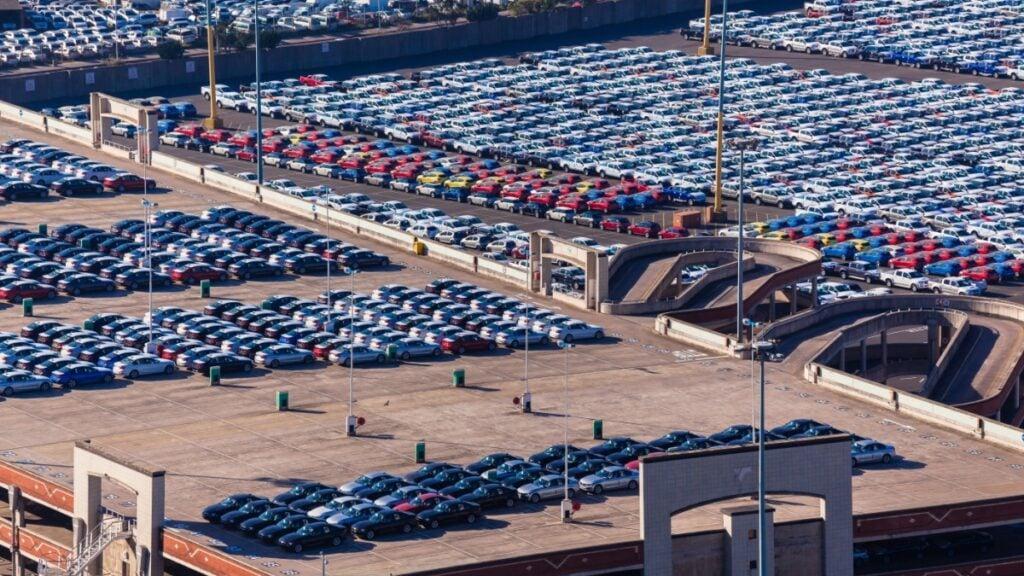Africa-Press – South-Africa. South Africa’s vehicle and parts exports to the United States declined by 55% in the 2025 year-to-date compared to the same period last year.
This was revealed by data in the latest report from the United States’ Census Bureau on international trade in goods and services.
The United States Census Bureau releases the US International Trade in Goods and Services report in collaboration with the US Bureau of Economic Analysis.
The US Census Bureau is a federal statistical agency within the U.S. Department of Commerce, responsible for statistics about the American economy.
Its data showed that South Africa’s automotive industry has been hard hit by the escalating United States tariffs under President Donald Trump.
The issue started on 2 April 2025, when US President Donald Trump’s ‘Liberation Day’ announcement outlined all the countries set to be hit with higher tariffs.
Trump imposed 30% tariffs on South Africa, calling the country one of the worst offenders in terms of unequal trade with the United States.
However, Trump decided to pause these tariffs for 90 days to allow affected countries to broker a deal.
On Monday, 7 July 2025, Trump unveiled a wave of letters that threatened to impose higher duties on American trading partners. South Africa was, once again, included.
He indicated that he was open to discussions with affected countries on the increased tariffs until at least 1 August 2025.
South Africa bungled the negotiations. On 1 August 2025, the White House confirmed in an Executive Order that South Africa will receive a 30% tariff starting 7 August 2025.
At one minute past midnight on Thursday morning, the 30% tariff on South African goods imported into the United States took effect.
The DA’s finance and economy national spokesperson, Dr Mark Burke, said South Africa’s automotive and agricultural industries will be the hardest hit.
This echoes the warning from South African Reserve Bank Governor Lesetja Kganyago, who said the US tariffs could cause 100,000 job losses.
The impact of US tariffs on South Africa’s automotive industry
US President Donald Trump announced wide-reaching tariffs on several countries on 2 April 2025.
The latest data from the United States’ Census Bureau report on international trade in goods and services showed that the tariffs hurt South Africa’s automotive industry.
Over the past two decades, South Africa has enjoyed preferential treatment in its trade with the United States under the African Growth and Opportunity Act (AGOA) programme.
South Africa’s vehicle sector was a significant beneficiary as AGOA allowed it to export passenger vehicles and automotive components to the US without paying import duties.
In 2024, South African exports of vehicles and vehicle parts accounted for 15% of all exports to the United States.
However, this changed in 2025 after Trump issued a Section 232 proclamation, subjecting imports of vehicles and vehicle parts into the United States to a 25% tariff.
The reason for the vehicle tariffs was to combat the United States’ reliance on international vehicle imports and benefit local manufacturing.
The tariffs took effect in April 2025, and vehicles imported under AGOA were not mentioned as exemptions from the 25% automotive tariff.
The proclamation stated that the tariffs would be imposed in addition to “most favoured nation” rates and would not be waived by preference programs such as AGOA.
The impact of these tariffs on the South Africa industry has been significant. Exports of vehicles and vehicle parts to the US decreased by 48% in April and by 58% in May compared to 2024.
The overall year-to-date exports of vehicles and vehicle parts to the US experienced a significant decrease of 55% compared to 2024.
This translates to total vehicle and vehicle parts exports falling from R17.7 billion in 2025 to only R8 billion in 2025.
From 7 August, South Africa will be subject to a 30% blanket tariff that would further increase the cost for US businesses to import vehicles from South Africa.
This would put South Africa at a further disadvantage compared to other countries exporting vehicles to the United States.
The already-apparent impact on South Africa’s vehicle exports will most likely be influenced to an even greater extent.
For More News And Analysis About South-Africa Follow Africa-Press






